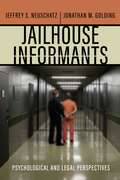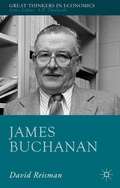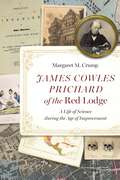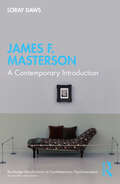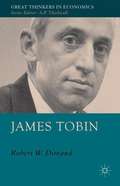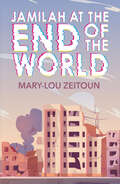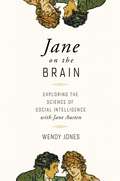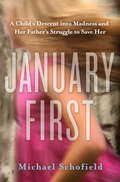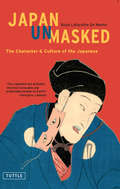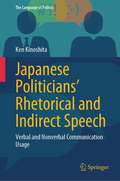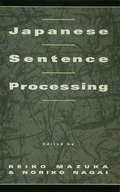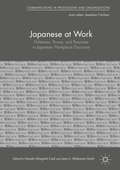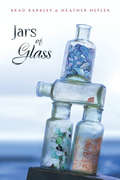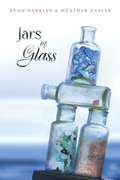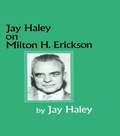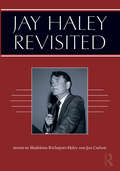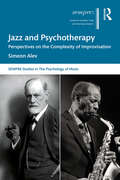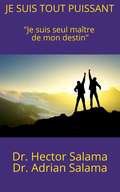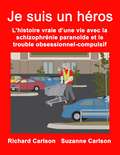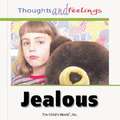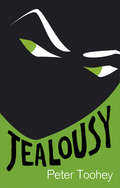- Table View
- List View
Jailhouse Informants: Psychological and Legal Perspectives (Psychology and Crime)
by Jeffrey S Neuschatz Jonathan M GoldingOffers a new understanding of jailhouse informants and the role they play in wrongful convictions Jailhouse informants—witnesses who testify in a criminal trial, often in exchange for some incentive—are particularly persuasive to jurors. A jailhouse informant usually claims to have heard the defendant confess to a crime while they were incarcerated together. Research shows that such testimony increases the likelihood of a guilty verdict. But it is also a leading contributor to wrongful convictions. Informants, after all, are generally criminals who are offering testimony in return for some key motivator, such as a reduced sentence. This book offers a broad overview of the history and legal and psychological issues surrounding the testimony of jailhouse informants. It provides groundbreaking psychological research to address how they are used, the number of convictions that have ultimately been overturned on other evidence, how such informants are perceived in the courtroom, and by what means jurors might be informed about the risks of this type of testimony. The volume provides a much-needed examination of legal remedies to the impact of jailhouse informants and suggests best practices in dealing with jailhouse informant testimony in court. There is a critical need to understand the influence of jailhouse informants and how their testimony can best be handled in court in the interests of justice. Jailhouse Informants is the first work of its kind that rises to the challenge of answering these difficult questions.
James Buchanan
by David ReismanJames Buchanan (1919-2013) was awarded the Nobel Prize in Economics in 1986 for his synthesis of market economics and political democracy. A libertarian, a contractarian, a constitutionalist, Buchanan saw the social world as a network of individuals revealing preferences and negotiating exchanges. Self-interest that might otherwise have led to the war of each against all is channelled into the division of labour and capitalism by consent. Trade gives rational individuals the opportunity to increase each other's felt well-being. Gain-seeking anarchy is the economist's utopia but still a protective State is needed to ensure that agreements are honoured and the rules obeyed. Buchanan made himself a missionary for binding agreements and good rules. Without them, he warned, we would surely fight. Using morals when other economists used mathematics, Buchanan argued a market economist's case for tolerance of diversity, unanimity of consensus and uncompromising respect. This book, James Buchanan, seeks to explain and evaluate the thought-provoking insights of a prolific and original thinker who enriched the ethical aspirations of a frequently dismal science.
James Cowles Prichard of the Red Lodge: A Life of Science during the Age of Improvement (Critical Studies in the History of Anthropology)
by Margaret M. CrumpMargaret M. Crump offers the first thorough biography of British scientist and physician James Cowles Prichard (1786–1848), an intellectual giant in the developing human sciences, a pioneering psychiatric theorist, and Europe&’s leading anthropologist during the first half of the nineteenth century.
James F. Masterson: A Contemporary Introduction (Routledge Introductions to Contemporary Psychoanalysis)
by Loray DawsIn this volume, Loray Daws traces the life and work of Dr. James F. Masterson, with a focus on the scientific development and later expansion of the six developmental stages of the Masterson Method. Exploring more than 15 of Masterson’s volumes, as well as countless articles, Daws shows how Masterson’s approach to Object Relations and the developmental self can serve clinicians in both conceptualizing and treating borderline, narcissistic, and schizoid disorders of self. Considering the pioneering and innovative nature of Masterson’s work, Daws looks at how he creatively expanded on Freud’s theories on repression, successfully developing therapeutically sound ways to touch and transform developmental trauma and trauma reflected in a deep abandonment depression. James F. Masterson: A Contemporary Introduction will be of interest to students in psychology, psychiatry, and psychiatric nursing, as well as psychoanalytically orientated psychotherapists, psychoanalysts, and those specializing in the ever-growing field of the treatment of the disorders of the self.
James Joyce and the Internal World of the Replacement Child (Routledge Focus on Mental Health)
by Mary AdamsThis book is an exploration of the internal world of James Joyce with particular emphasis on his being born into his parents’ grief at the loss of their firstborn son, offering a new perspective on his emotional difficulties. Mary Adams links Joyce’s profound sense of guilt and abandonment with the trauma of being a ‘replacement child’ and compares his experience with that of two psychoanalytic cases, as well as with Freud and other well-known figures who were replacement children. Issues such as survivor guilt, sibling rivalry, the ‘illegitimate’ replacement son, and the ‘dead mother’ syndrome are discussed. Joyce is seen as maturing from a paranoid, fearful state through his writing, his intelligence, his humour and his sublime poetic sensibility. By escaping the oppressive aspects of life in Dublin, in exile he could find greater emotional freedom and a new sense of belonging. A quality of claustrophobic intrusive identification in Ulysses contrasts strikingly with a new levity, imaginative identification, intimacy and compassion in Finnegans Wake. James Joyce and the Internal World of the Replacement Child highlights the concept of the replacement child and the impact this can have on a whole family. The book will be of interest to psychoanalysts, psychoanalytic psychotherapists and child psychotherapists as well as students of English literature, psychoanalytic studies and readers interested in James Joyce.
James Tobin
by Robert W. DimandJames Tobin, 1981 Nobel laureate in economics, was the outstanding monetary economist among American Keynesian economists. This book, the first written about James Tobin, examines his leading role as a Keynesian macroeconomist and monetary economist, and considers the continuing relevance of his ideas.
Jamilah at the End of the World
by Mary-Lou ZeitounSeventeen-year-old Jamilah Monsour makes plans for what she's certain is the beginning of the climate change catastrophe that will end the world. Luckily, Jamilah knows what has to be done to save her family: reluctantly her parents allow her to transform the back alley garage into a bunker, but they draw the line when she announces she’s going to skip university and instead use the money they had saved for her education to buy solar panels and a generator. When an electricity blackout strikes, Jamilah's climate change anxiety kicks into high gear and she ends up staying out all night, infuriating her father who is done with all this doomsday nonsense. Distributed in the U.S by Lerner Publishing Group.
Jane on the Brain: Exploring The Science Of Social Intelligence With Jane Austen
by Wendy JonesAn Austen scholar and therapist reveals Jane Austen's intuitive ability to imbue her characters with hallmarks of social intelligence—and how these beloved works of literature can further illuminate the mind-brain connection. Why is Jane Austen so phenomenally popular? Why do we read Pride and Prejudice again and again? Why do we delight in Emma’s mischievous schemes? Why do we care that Anne Elliot of Persuasion suffers? We care because it is our biological destiny to be interested in people and their stories—the human brain is a social brain. And Austen’s characters are so believable, that for many of us, they are not just imaginary beings, but friends whom we know and love. And thanks to Austen's ability to capture the breadth and depth of human psychology so thoroughly, we feel that she empathizes with us, her readers. Humans have a profound need for empathy, to know that we are not alone with our joys and sorrows. And then there is attachment, denial, narcissism, and of course, love, to name a few. We see ourselves and others reflected in Austen’s work. Social intelligence is one of the most highly developed human traits when compared with other animals How did is evolve? Why is it so valuable? Wendy Jones explores the many facets of social intelligence and juxtaposes them with the Austen cannon. Brilliantly original and insightful, this fusion of psychology, neuroscience, and literature provides a heightened understanding of one of our most beloved cultural institutions—and our own minds.
January First: A Child's Descent into Madness and Her Father's Struggle to Save Her
by Michael SchofieldMichael Schofield's daughter January is at the mercy of her imaginary friends, except they aren't the imaginary friends that most young children have; they are hallucinations. And January is caught in the conflict between our world and their world, a place she calls Calalini. Some of these hallucinations, like "24 Hours," are friendly and some, like "400 the Cat" and "Wednesday the Rat," bite and scratch her until she does what they want. They often tell her to scream at strangers, jump out of buildings, and attack her baby brother. At six years old, January Schofield, "Janni," to her family, was diagnosed with schizophrenia, one of the worst mental illnesses known to man. What's more, schizophrenia is 20 to 30 times more severe in children than in adults and in January's case, doctors say, she is hallucinating 95 percent of the time that she is awake. Potent psychiatric drugs that would level most adults barely faze her. January First captures Michael and his family's remarkable story in a narrative that forges new territory within books about mental illness. In the beginning, readers see Janni's incredible early potential: her brilliance, and savant-like ability to learn extremely abstract concepts. Next, they witnesses early warning signs that something is not right, Michael's attempts to rationalize what's happening, and his descent alongside his daughter into the abyss of schizophrenia. Their battle has included a two-year search for answers, countless medications and hospitalizations, allegations of abuse, despair that almost broke their family apart and, finally, victories against the illness and a new faith that they can create a life for Janni filled with moments of happiness. A compelling, unsparing and passionate account, January First vividly details Schofield's commitment to bring his daughter back from the edge of insanity. It is a father's soul-baring memoir of the daily struggles and challenges he and his wife face as they do everything they can to help Janni while trying to keep their family together. From the Hardcover edition.
Japan Unmasked: The Character & Culture of the Japanese (Tuttle Classics)
by Boye Lafayette De MenteThe growing globalization of world business, culture and communication--and Japan's increasingly important role as a leader in that world--makes understanding Japanese culture critical for business people, diplomats, students, educators and anyone else with an interest in Japan.<P><P>Westerners have recognized--and analyzed--the many unique aspects of Japanese culture since they first set foot in Japan in the 16th century. The special talents (and weaknesses) that characterize the Japanese way of life are by now well-documented. But few Westerners really understand the beliefs and values that underlie how the Japanese think and act, how and why these attributes have been preserved in Japanese culture from ancient times through the modern day, or the critical role they play in today's Japanese society.In Japan Unmasked veteran Japanologist and author Boye Lafayette De Mente explores the social, cultural, and psychological characteristics responsible for the unique nature of modern-day Japanese culture-- the real "face" behind the "mask"--and demonstrates how they have brought the Japanese to their central role on the world stage.
Japan and Reconciliation in Post-war Asia
by Kazuhiko TogoTaking a comparative approach and bringing together perspectives from Japan, China, Korea, and Taiwan, this volume considers former Japanese prime minister Tomiichi Murayama's 1995 apology statement, the height of Japan's post-war apology, and examines its implications for memory, international relations, and reconciliation in Asia.
Japanese Politicians’ Rhetorical and Indirect Speech: Verbal and Nonverbal Communication Usage (The Language of Politics)
by Ken KinoshitaThis book presents a new approach to the analysis of political psychology, political culture, and communication. Using data from Japanese political interviews and parliamentary deliberations, it reveals how Japanese politicians address their audience. In addition to analyzing the use of verbal political rhetoric, the book shows that nonverbal communication is highly relevant as well. In a context where political leaders are becoming increasingly important, identifying the techniques used by Japanese politicians – especially facial expressions, hand gestures, and other forms of body language – to gain support from the audience, leads us to consider communication practices of political leaders around the world. Politicians adopt different communication styles based on their specific electoral system. The more single-seat constituency political candidates use rhetoric, the greater their chance of appealing to voters. In addition, the use of personal experiences and others' speech quotations function as effective political rhetoric, further attracting the audience’s attention. In short, this book presents a more comprehensive and holistic picture of political “rhetoric” than usually offered by other studies of political communication.
Japanese Psychotherapies: Silence And Body-mind Interconnectedness In Morita, Naikan And Dohsa-hou
by Velizara ChervenkovaThis book discusses both the theoretical and practical aspects of three Japanese psychotherapeutic approaches - Morita, Naikan, and Dohsa-hou. Specifically, it tracks how the strong cultural specificities of these approaches gather into two focal points, giving rise to the therapeutic power of silence on one hand, and to body-mind interconnectedness on the other. It first describes the development of the three psychotherapies in chronological order, and then goes on to highlight the research that explains their dynamics and at the same time elaborates on their potential for universal applicability hidden behind otherwise unquestionable cultural nuances. This well-structured work fills the gap in the English-language literature on Japanese psychotherapies.
Japanese Sentence Processing
by Reiko Mazuka Noriko NagaiThis volume is a direct result of the International Symposium on Japanese Sentence Processing held at Duke University. The symposium provided the first opportunity for researchers in three disciplinary areas from both Japan and the United States to participate in a conference where they could discuss issues concerning Japanese syntactic processing. The goals of the symposium were three-fold: * to illuminate the mechanisms of Japanese sentence processing from the viewpoints of linguistics, psycholinguistics and computer science; * to synthesize findings about the mechanisms of Japanese sentence processing by researchers in these three fields in Japan and the United States; * to lay foundations for future interdisciplinary research in Japanese sentence processing, as well as international collaborations between researchers in Japan and the United States. The chapters in this volume have been written from the points of view of three different disciplines, with various immediate objectives -- from building usable speech understanding systems to investigating the nature of competence grammars for natural languages. All of the papers share the long term goal of understanding the nature of human language processing mechanisms. The book is concerned with two central issues -- the universality of language processing mechanisms, and the nature of the relation between the components of linguistic knowledge and language processing. This volume demonstrates that interdisciplinary research can be fruitful, and provides groundwork for further research in Japanese sentence processing.
Japanese at Work: Politeness, Power, And Personae In Japanese Workplace Discourse (Communicating In Professions And Organizations Ser.)
by Haruko Minegishi Cook Janet S. Shibamoto-SmithThis book empirically explores how different linguistic resources are utilized to achieve appropriate workplace role inhabitance and to achieve work-oriented communicative ends in a variety of workplaces in Japan. Appropriate role inhabitance is seen to include considerations of gender and interpersonal familiarity, along with speaker orientation to normative structures for marking power and politeness. This uniquely researched edited collection will appeal to scholars of workplace discourse and Japanese sociolinguistics, as well as Japanese language instructors and adult learners of Japanese. It is sure to make a major contribution to the cross-linguistic/cultural study of workplace discourse in the globalized context of the twenty-first century.
Jars of Glass
by Brad Barkley Heather HeplerFrom the critically acclaimed authors of Scrambled Eggs at Midnight and Dream Factory comes a poignant story of two sisters. Chloe and Shana want the same thing?for everything to go back to normal, the way it was before their mom went to the hospital. But both sisters know that things can never be the same. While Chloe wants their mom to come home so they can be a family again, Shana never wants to see their mother. And while Shana is trying to escape her problems by hiding under a new persona, Chloe is left trying to be the responsible one. Then things go from bad to worse, and the sisters are forced to band together and redefine what it means to be a family.
Jars of Glass: A Novel
by Brad Barkley Heather HeplerTeenage sisters Chloe and Shana recall fondly the days when their mother wove stories about kingdoms under the sea. Now that Mom is "away", Chloe does not allow herself to believe in fairy tales. She is too busy caring for her adopted brother, Micah, because Dad has become withdrawn. Shana copes by escaping every night under the cover of Goth garb. The day the family visits Mom for the first time is the day Chloe learns why Shana will never allow their mother to return. It is up to the sisters to pull together and form a new definition of family.
Jarvis Clutch - Social Spy
by Melvin D. LevineSocial interactions are often the most stressful aspect of adolescent life. In Jarvis Clutch--Social Spy, Dr. Levine teams up with fictitious eight-grader Jarvis Clutch to offer insight and advice on the middle school social scene.
Jay Haley On Milton H. Erickson
by Jay HaleyThe first chapter provides a succinct biography of this extraodinary man, describing how Erickson overcame numerous adversities in early life, and how these events shaped his development as a highly innovative thinker. Commentaries on Milton Erickson, M.D. examines the practical and theoretical aspects of Erickson's methods, including his therapeutic posture, expectation of change, emphasis on the positive, acknowledgement of more than one solution to a problem, blocking of symptomatic behavior, change in relation to the therapist, use of anectodes, and willingness to "let go" of patients. A Review of Ordeal Therapy focuses on a controversial therapeutic technique successfully used by Erickson. Haley cautions the reader, however, of the care with which this powerful technique should be exercised. A fascinating dialogue between Jay Haley and John Weakland,
Jay Haley Revisited
by Jon Carlson Madeleine Richeport-HaleyJay Haley Revisited brings together influential professionals in psychotherapy and counseling to introduce, analyze, and put into context 20 of the most interesting and significant papers Jay Haley produced, both published and unpublished. Jay Haley was one of the most influential thinkers in psychotherapy who revolutionized the field through his writings, teachings, research, and supervision for more than half a century. The seminal classic papers found in this volume capture the wit, humor, and the ability to look at a field and offer critique that leads to constructive change. This book will delight readers who, in one volume, can trace the birth and development of the field of family therapy, and the revolution from traditional ideas to modern therapy approaches, in the voice of one of the field’s most gifted teachers.
Jazz and Psychotherapy: Perspectives on the Complexity of Improvisation (SEMPRE Studies in The Psychology of Music)
by Simeon AlevBlending the insights of musicians and psychologists from D.W. Winnicott to Gregory Bateson to Ornette Coleman, Jazz and Psychotherapy is a groundbreaking exploration of improvisation that reveals its potential to transform our experience of ourselves and the challenges we face as a species. What we all share with the professional improvisers known as "psychotherapists" and "jazz musicians" is the reality of not knowing what those around us—or even we ourselves—are going to do next. Rather than avoiding it, however, these practitioners have learned to revere our inherent unpredictability as precisely the feature of human living that makes transformative change possible, fully incorporating it into the theories and practices that constitute their disciplines. Jazz and Psychotherapy provides a sophisticated but accessible overview of the revolutionary approaches to human development and creative expression embodied in these two seemingly disparate twentieth-century cultural traditions. Readers interested in music, psychotherapy, social psychology and contemporary theories of complexity will find Jazz and Psychotherapy engaging and useful. Its colorful synthesis of perspectives and multidimensional scope make it an essential contribution to our understanding of improvisation in music and in life.
Je suis tout puissant: Je suis seul maître de mon destin
by Hector Salama et Adrian SalamaVous ne pouvez imaginer le plaisir que cela me procure de savoir que, pour votre vie, vous avez choisi le chemin de la richesse. Bien qu’au début, cela puisse ressembler à une route épineuse, raide et tortueuse, vous emportez avec vous tout l'attirail nécessaire et adéquat, qui vous permettra de rencontrer la réussite, au sommet de votre propre montagne. J'ai choisi d'écrire ce livre avec mon père, non seulement à cause de mon admiration pour lui, mais aussi pour sa grande expérience. En 2017, j’ai payé les frais de mes propres décisions. J’ai commis la pire des erreurs, dont la conséquence naturelle a été une banqueroute. Non seulement j'ai été brisé, mais j’ai aussi frôlé la dépression. Je comprends que nous commettons tous des erreurs, mais je me sentais supérieur, j'étais arrogant et narcissique. Je pensais que j’étais incapable de commettre des erreurs, surtout que je venais de terminer un doctorat en psychothérapie (heureusement, que ce n'était pas en économie). J'ai dû m’endetter et cesser de répondre à des centaines d'appels, me réclamant les découverts de mes cartes et les services que j'avais utilisés, afin de réparer les horreurs de mes décisions. Pour être honnête, à plusieurs reprises, j'ai pensé à mettre fin à ma vie. Cependant, partagé entre la lâcheté et la peur, j’ai décidé de changer de cap et de me concentrer sur ce que je pouvais effectivement réaliser. C'est ainsi que plusieurs idées et opportunités ont surgi, mais elles étaient dorénavant issues d’une grande humilité. J’avais touché le fond et n'avais plus rien à perdre. Cela me donna le courage d'utiliser mon esprit pour mon propre bien et non pour des raisons pécuniaires. Ce libre répond à ce besoin. Si vous vivez la même expérience que j’ai vécue moi-même ou si simplement vous ne voulez jamais vivre une chose pareille, je veux que ce livre puisse illuminer votre vie, comme il l�
Je suis un héros: L’histoire vraie d’une vie avec la schizophrénie paranoïde et le trouble obsessionnel-compulsif
by Richard CarlsonRich, un homme atteint d’une maladie mentale grave, devient un héros quand il rencontre par hasard une femme évanouie dans le parc de stationnement.
Jealous (Thoughts and Feelings)
by Sylvia Root TesterSimple rhyming text describes jealousy, how it feels, and what can cause it. "I'm up in my room. I've banged the door. My face feels all red, I'm kicking the floor."
Jealousy
by Peter TooheyCompete, acquire, succeed, enjoy: the pressures of living in today's materialistic world seem predicated upon jealousy--the feelings of rivalry and resentment for possession of whatever the other has. But while our newspapers abound with stories of the sometimes droll, sometimes deadly consequences of sexual jealousy, Peter Toohey argues in this charmingly provocative book that jealousy is much more than the destructive emotion it is commonly assumed to be. It helps as much as it harms. Examining the meaning, history, and value of jealousy, Toohey places the emotion at the core of modern culture, creativity, and civilization--not merely the sexual relationship. His eclectic approach weaves together psychology, art and literature, neuroscience, anthropology, and a host of other disciplines to offer fresh and intriguing contemporary perspectives on violence, the family, the workplace, animal behavior, and psychopathology. Ranging from the streets of London to Pacific islands, and from the classical world to today, this is an elegant, smart, and beautifully illustrated defense of a not-always-deadly sin.
